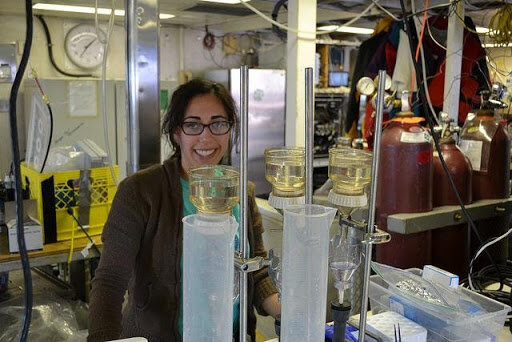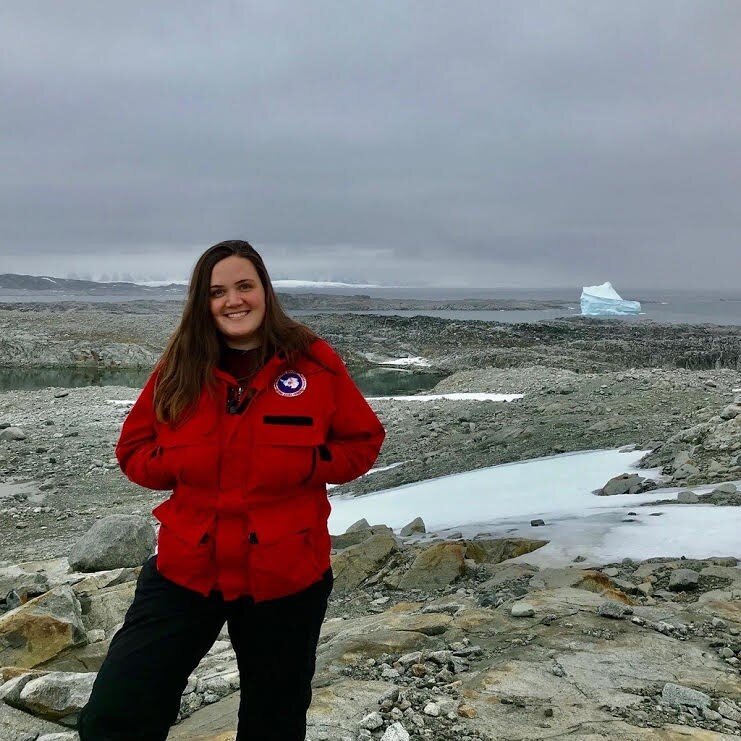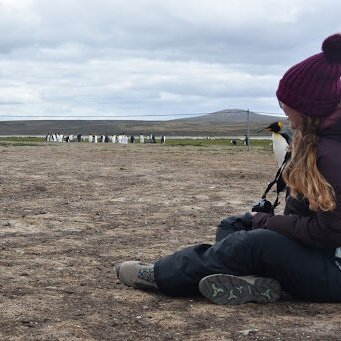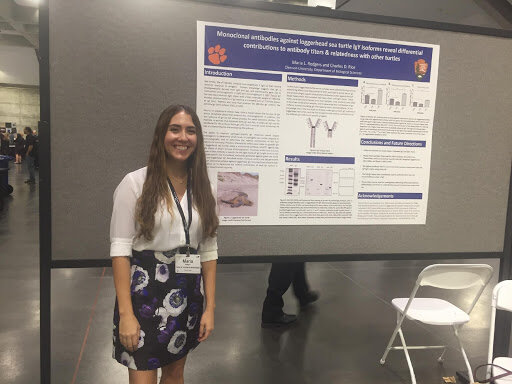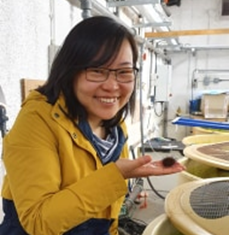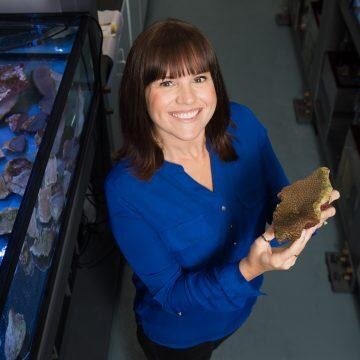Publication Spotlight – Dinoflagellate metabolism across the central Pacific Ocean
Dinoflagellates are single-celled eukaryotes that are capable of photosynthesis, heterotrophy (eating), or both. They have a few several noteworthy characteristics: they can travel vertically in the water column using their flagella, they are capable of bioluminescence which can light up the ocean at night(!), and some coastal species produce toxins that can harm fish, birds and people.
Antarctic Marine Bacteria! - An interview with Beth Connors
Beth Connors is a PhD student in the Bowman Lab for Scripps of UCSD. She is currently spearheading trips to Antarctica where she studies the ecological roles and genomics of heterotrophic (must eat to live) marine bacteria.
Arctic Adventures – Microplastics with Tristyn Garza
Tristyn Garza is a graduate student at the University of West Florida, with a focus on microplastic pollution. Tristyn is working with samples from the Great Lakes to Antarctic identifying and categorizing microplastics. Learn more about her work and her research journey below!
Shedding Light on the Harmful Impacts of Oil: An Interview with Maria Rodgers
Maria Rodgers, a Postdoctoral Fellow at the University of Southern Mississippi’s Gulf Coast Research Lab, studies the responses of marine species to oil in the Gulf of Mexico. With an impressive six publications to her name, read further to unravel how Maria got to where she is now.
Marine Molecular Biology: An Interview With Yasmin Meeda
Marine biology is using the powerful methods of molecular biology to answer a variety of evolutionary and ecological questions. Meet Yasmin is a Marine Molecular Biologist studying at the University of Plymouth and the Treasurer for the Royal Society of Biology. Here is an insight to what life is like as a molecular biologist!
Searchin’ the Urchins – Ecotoxicology with Fengjia Liu
Fengjia Liu is a first-year PhD student with the University of Highlands and Islands and based at the Scottish Association for Marine Sciences (Scotland, UK). Her research focuses on ecotoxicology of sea urchins. https://www.sams.ac.uk/people/research-students/fengjia-liu/
From Junkyard to Coral Research: An interview with Assistant Professor Dr. Sarah Davies
Dr. Sarah Davies, an assistant professor at Boston University utilises molecular techniques to understand how reef-building corals adapt and respond to climate change. Her lab, ‘The Davies Marine Population Genomics Lab’, seeks to understand precisely how and why these responses occur. To date, Dr. Davies has over 30 publications and is an inspiring woman in her field. Continue below as she reveals her journey from junkyard to assistant professor.
The Most Powerful Creatures You’ve Never Seen
The microbiological organisms of the marine world create a splash way too big for their size. The feats of the tiny range from resourceful to beautiful and even frightening. Coccolithophores have been impacting our world since the day they first evolved. Here are the ways that microscopic creatures impact the marine world.
Marine Molecular Biologist: Maha Cziesielski
For our first ever guest on the Girls 4 Ocean interview series, we interview marine molecular biologist, Maha Cziesielski. From jellyfish DNA to corals and climate change, keep reading to find out about the magical molecular world of the ocean and Maha’s journey into marine biology…

